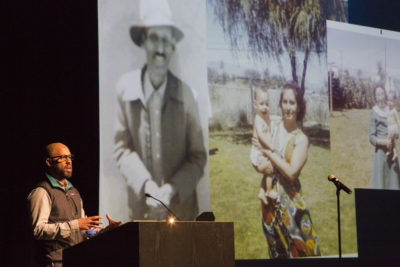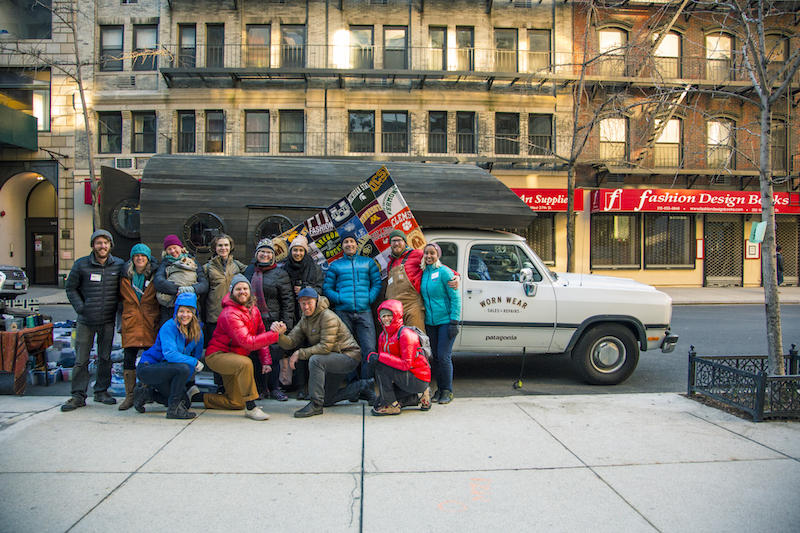
In 1968, mountain climber Yvon Chouinard was part of the third team to ascend Cerro Fitz Roy in Patagonia, and he experienced a spiritual epiphany. “We got into our souls a sense of beauty,” he later explained. This vision led to his founding the sportswear company Patagonia, now highly esteemed for its commitment to nature. On March 2 and 3, as part of FIT’s Sustainability Awareness Week, representatives of the firm visited the college to explain and demonstrate their Worn Wear environmental program. They also gave a presentation, “What to Do, How to Live: Personal Activism for a Threatened Planet.” FIT was one of a select few colleges to host the tour nationwide, and the only one in New York City; Patagonia’s vice president of public engagement, Rick Ridgeway, visited only seven campuses.
Both days, Patagonia parked its Worn Wear vehicle on 27th Street, and their staff repaired any garments the FIT community brought by (not just Patagonia brand). There was a DIY table with tools so participants could repair their own clothing. On its website, the company explains: “The single best thing we all can do for the planet is to keep our stuff in use longer.” A Worn Wear representative says there are 60 full-time repair technicians at their Reno facility, “the largest repair center in North America.” In addition, used Patagonia clothes were available for sale for up to 80 percent off the purchase price. Ridgeway said up to 1,000 people participated in Worn Wear at each campus stop.
At the “What to Do, How to Live” presentation, Patagonia speakers were introduced by FIT students Julianna Casale, who worked on the college’s natural dye garden and fabric composting efforts, and William Rossi, the director of sustainability for FIT’s student government. Climber Scott Briscoe described his experience as a member of the first African-American team to scale Denali, the highest peak in North America. Environmental activist Adam Werbach explained how he got involved in political action, and he challenged the students to get involved too. Ridgeway named two specific actions to take: 1) Buy only from companies committed to the environment, and 2) Work for companies dedicated to sustainability.
A student asked, “Why aren’t more companies like Patagonia?” “They are,” Ridgeway replied. In 2009, he helped start the Sustainable Apparel Coalition with Walmart; today, he said, the S.A.C., an alliance for sustainable production, represents half the apparel, footwear, and home furnishing textile companies in the world.

